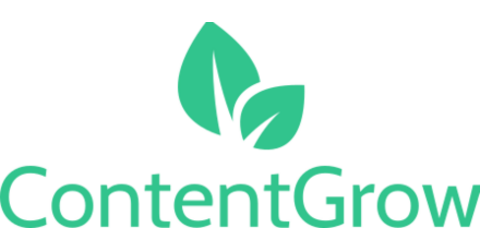How agencies can stop selling hours and start scaling expertise: Benjamin Zenou's methodology-first approach
Benjamin Zenou explains how Suits.ai transforms agency methodologies into AI agents, moving beyond productivity to scalable expertise delivery.

Serial entrepreneur Benjamin Zenou believes most agencies are approaching AI backwards. Instead of automating tasks, they should be systematizing the expertise that makes them unique in the first place.
A year and a half ago, Benjamin Zenou and co-founder Jonathan Moraly sat down and asked themselves a hard question: "If everyone has access to all the knowledge in the world, what happens to knowledge-based businesses?"
The question led to over 100 interviews with consultants across different verticals and ultimately shaped their approach to Suits.ai, the Miami-based AI platform they launched to help agencies transform methodologies into scalable AI agents. What he discovered challenges the conventional wisdom about how professional services firms should implement AI.
Benjamin brings two decades of B2B technology transformation experience to the venture. After successfully scaling SimpliField from startup to acquisition by Field Agent Inc., he identified what he sees as a fundamental misunderstanding in how agencies approach AI adoption. The platform he and Jonathan built represents their bet that the future of professional services lies not in traditional productivity tools, but in systems that can capture and scale the decision-making frameworks that drive successful outcomes.
In this interview, we explore Benjamin's perspective on why most agencies are implementing AI backwards, the specific framework he and Jonathan developed for capturing institutional knowledge, and how the transformation from selling time to scaling expertise could reshape the professional services landscape.
Short on time?
Here's a quick navigation to the key insights:
- From knowledge to methodology
- What makes great AI agents
- The methodology capture process
- Overcoming adoption hurdles
- Breaking the commoditization myth
- Future-proofing agency expertise
From knowledge to methodology
"We've both worked with dozens of professional services firms, both as vendors and as clients. Brilliant people doing brilliant work," Benjamin reflects. "But we realized something: when everyone has the same access to information, your competitive advantage isn't what you know, it's how you apply what you know to specific client contexts."
This insight fundamentally shaped their platform's development. While most AI tools focus on automating tasks, Benjamin and Jonathan built Suits.ai to capture and scale the decision-making frameworks that separate top performers from the rest.
"I'd talk to a performance marketing consultant who had this incredible methodology for audience research, not just 'research your audience,' but a specific 12-step process with decision trees and quality checkpoints. Then I'd meet a conversion rate optimizer who had mapped out exactly which elements to test first based on traffic volume and business model," Benjamin explains.
"The pattern was clear: the top performers weren't just knowledgeable, they had repeatable systems. But those systems were trapped, they could only serve one client at a time with their methodology."
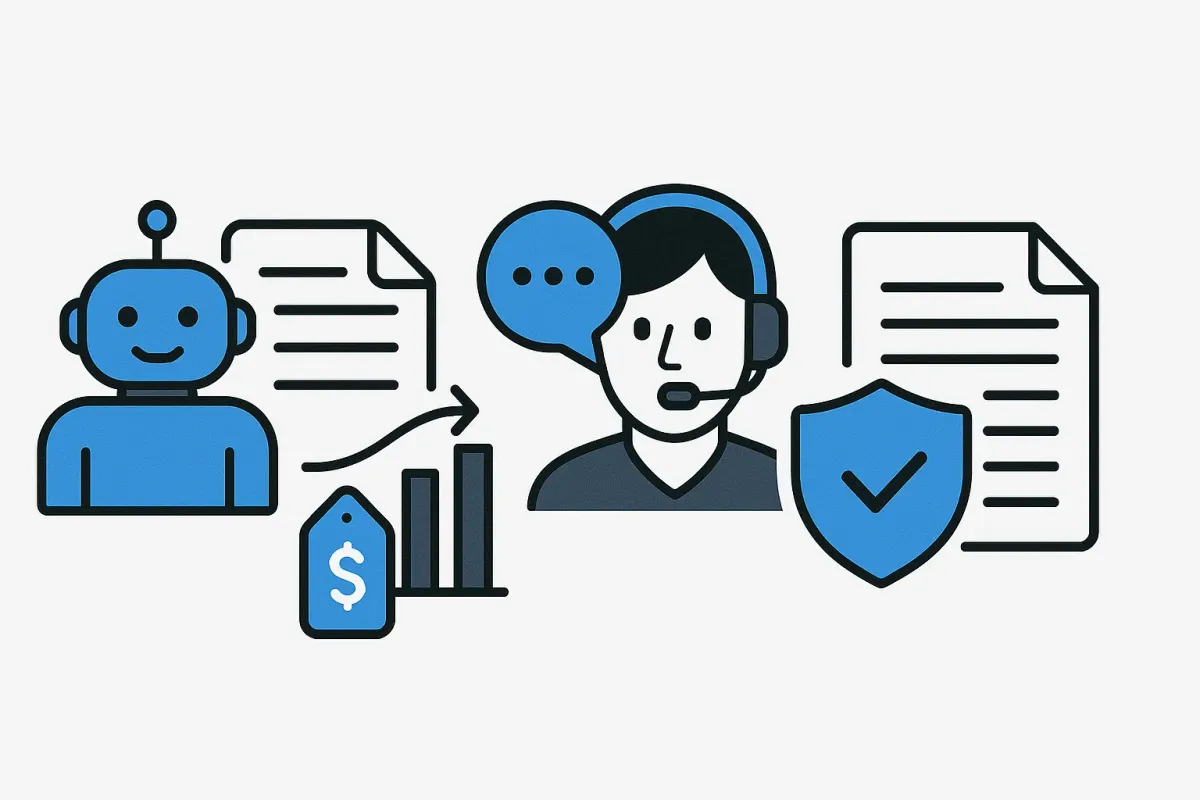
What makes great AI agents
As agencies navigate an increasingly crowded AI landscape—with 61.4% of marketers having used AI and 98% planning further adoption—Benjamin's experience suggests the differentiator isn't the technology itself but how it's trained.
"The best AI agents are trained on specific, documented methodologies and client specific knowledge, not generic industry knowledge," he emphasizes. "The firms that succeed treat agent training like onboarding a senior consultant."
This approach requires systematic knowledge transfer—teaching systems specific frameworks for competitive analysis, quality checkpoints for deliverables, and structured approaches to client discovery.
Benjamin points to Hirsch Leatherwood, an award-winning PR agency using Suits.ai that, according to Suits.ai, achieved a 75% reduction in manual research and saved over 120 hours monthly by training AI systems on their specific media relations methodology and reporting standards.
"They didn't just tell the agent 'do PR research.' They trained it on their specific media relations methodology, their client communication templates, and their reporting standards. The agent became an extension of their proven process," Benjamin explains.
In contrast, agencies that expect immediate results without methodology transfer typically see disappointing outcomes. They want AI systems to intuit their years of developed processes without systematic teaching.
The methodology capture process
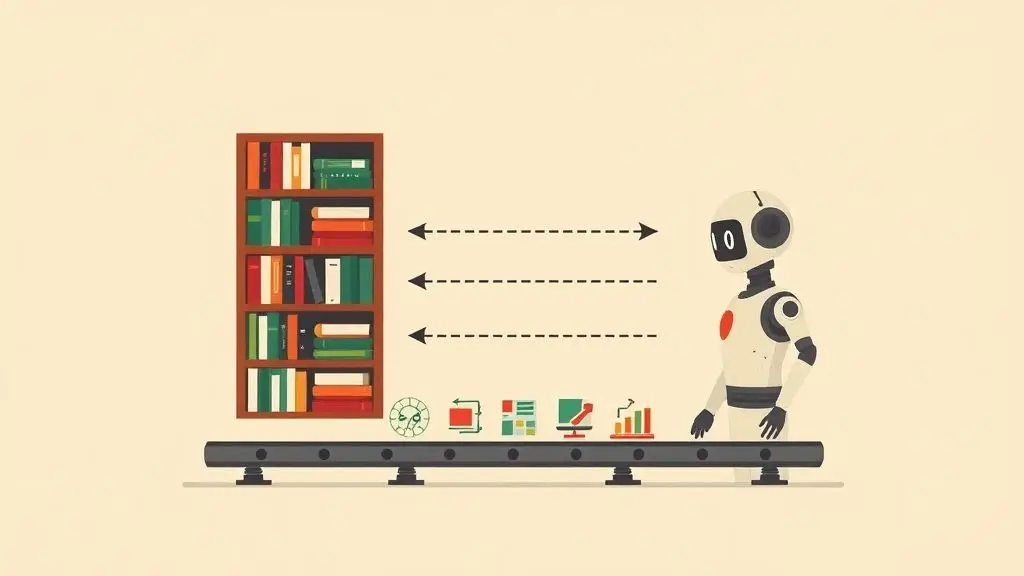
According to Benjamin, the key challenge isn't technological—it's organizational. How do you systematically capture expertise that has traditionally existed in practitioners' heads?
"We've developed what we call the 'Methodology Capture Framework' based on patterns we've seen across successful implementations," Benjamin explains.
The process begins with tool connections across existing business systems—what Benjamin describes as leveraging 50+ integrations to quickly capture client knowledge directly from firms' current workflows without manual data entry.
Next comes agent customization. "You can completely customize your white-label agent with specific voices, personas, and knowledge bases in minutes. Each client gets their own tailored version that reflects their unique approach and brand voice," Benjamin notes.
The platform includes what Benjamin calls a "toolbox of 70+ pre-built workflows as a foundation" covering everything from client research and competitive analysis to report generation and proposal writing. "Firms can use these out-of-the-box or customize them to match their specific methodologies," he says.
"But the real value comes from iterative refinement. We run test scenarios, the firm provides feedback, and we continuously improve the agent's responses based on real client interactions," Benjamin explains.
The timeline he describes—4-6 weeks with productivity gains visible within the first week—reflects a systematic approach. "By week three, most are asking about Phase 2: external monetization."
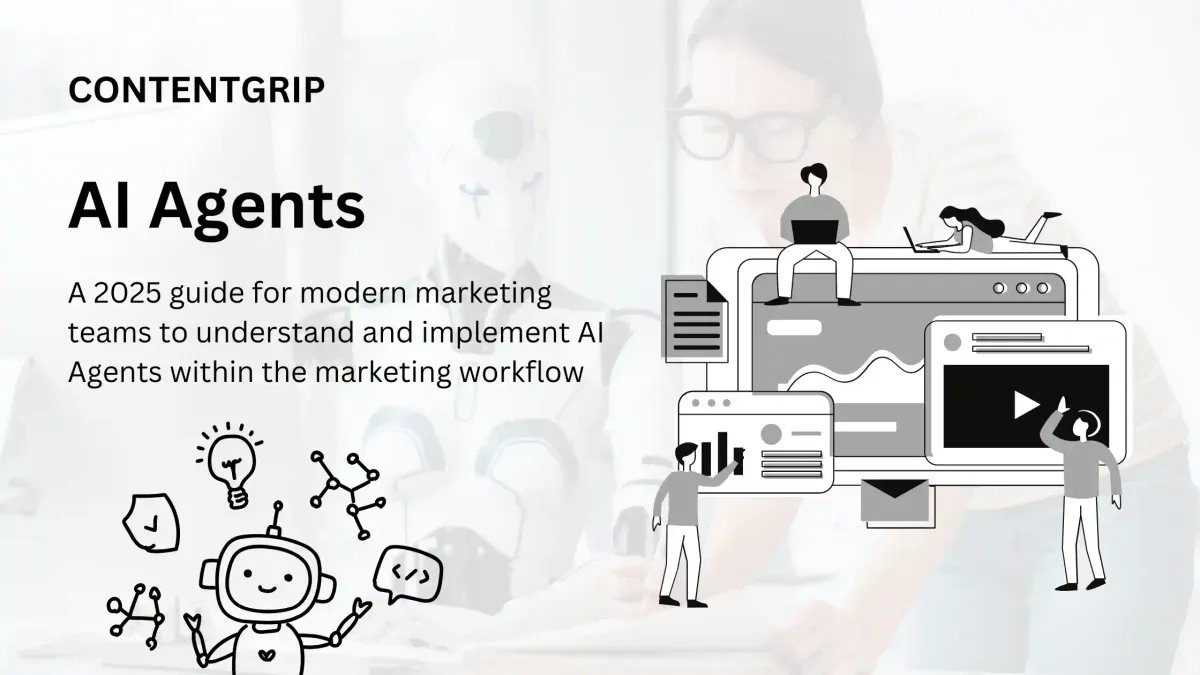
Overcoming adoption hurdles
Benjamin believes agencies need to see immediate value without disrupting their core operations. His approach focuses on incremental implementation rather than wholesale transformation.
"We focus on delivering tangible ROI right away, without requiring firms to overhaul their business models upfront," he says. "Instead of leading with lofty promises like 'transform your agency,' we start with practical outcomes like 'help your team achieve 40% higher productivity this month.'"
Benjamin cites Better Together Agency as an example of successful gradual implementation. The agency reports they were previously spending 1-2 weeks on proposal cycles, essentially dedicating 1.5 full-time employees to new business pursuit. According to Suits.ai, after implementing the platform, they reduced proposal turnaround to three days while maintaining quality.
The transformation the agency describes included reducing client research from 12 hours to 3 hours, cutting strategic framework development from 8 hours to 2 hours, and streamlining proposal writing from 16 hours to 4 hours while maintaining their authentic voice.
"We were at a crossroads. Either we hire more people to handle proposal work, or keep saying no to potential clients. [AI] gave us a third option that we didn't know existed," said Catharine Montgomery, CEO of Better Together Agency.
However, Benjamin identifies a deeper challenge beyond operational implementation: the fundamental shift from selling time to selling expertise represents a paradigmatic change for firms built on billable hours.
Breaking the commoditization myth
The most persistent barrier to AI agent adoption stems from agencies' fear that systematizing their expertise will make them replaceable. Benjamin directly challenges this assumption based on successful client implementations.
"The biggest fear is commoditization. They think, 'If my methodology is in an AI agent, what makes me special anymore?'" he explains. "I flip this completely based on what we've seen with our most successful clients. AI doesn't commoditize expertise, it amplifies it."
Benjamin argues the logic works in reverse. "The consultant with the best methodology doesn't become less valuable when it's scaled through AI. They become more valuable because now they can serve 1,000 clients instead of 30."
The positioning shift transforms competitive dynamics entirely. "The firms that get this become category leaders. They're not competing on availability anymore, they're competing on the quality and uniqueness of their approach. Their AI agent becomes their competitive moat," Benjamin notes.
"I tell them: 'Your competitors are still selling hours. You're about to start selling outcomes at scale,'" as Benjamin puts it.
This fundamental business model shift leads to his broader vision for the industry's future.
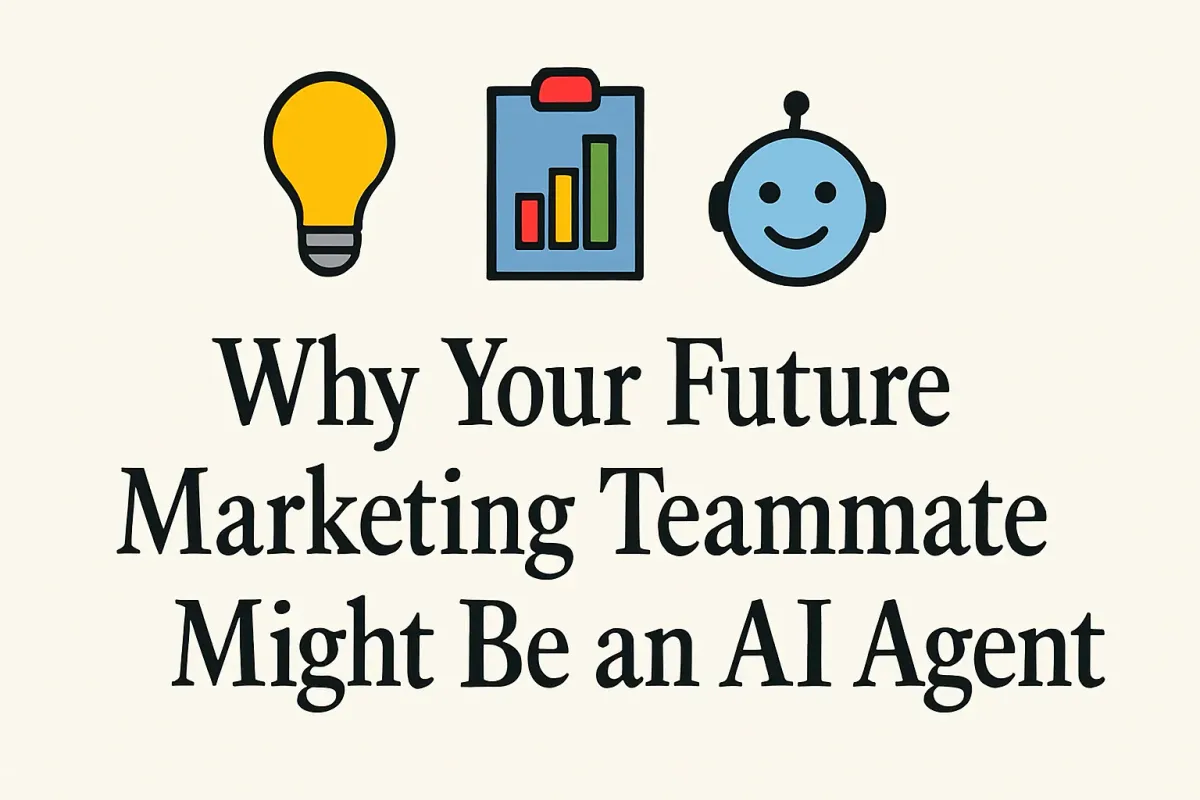
Future-proofing agency expertise

Looking beyond immediate productivity gains, Benjamin envisions AI agents fundamentally reshaping how professional services deliver value.
"The window for competitive advantage is closing fast. Firms that move now will define their markets. Those who wait will be playing catch-up," he warns.
The transformation extends beyond internal operations to entirely new business models. Agencies can package their methodologies as client-facing AI products, creating recurring revenue streams independent of human time constraints.
The competitive landscape will increasingly favor agencies that can deliver consistent expertise at scale rather than those constrained by human availability. AI agents enable this transformation by maintaining quality standards while expanding capacity exponentially.
"The marketers who thrive in this new landscape will be those who embrace AI as a partner rather than resist it as a threat. The skills that will matter most aren't technical execution but strategic thinking, creative direction, and ethical oversight," Benjamin concludes.

His message reflects the central challenge he and Jonathan identified from the beginning: the same AI capabilities that could commoditize expertise can also amplify it—but only for firms that systematize their knowledge before their competitors do.
"AI is changing that. Fast," Benjamin notes. "We knew we didn't want to build another productivity tool. We wanted to help firms protect what makes them great while reimagining how they deliver it at scale."
The question Benjamin poses to agency leaders is direct: "How do we evolve without losing what makes us special?" For him, the answer lies in the insight that launched their venture—when everyone has access to the same information, competitive advantage comes from systematic application, not knowledge accumulation.
For agency leaders considering this approach, Benjamin's experience suggests three key starting points: begin by documenting your firm's existing methodologies and decision-making frameworks, identify which processes could benefit from systematization rather than just automation, and start small with internal productivity improvements before exploring client-facing applications.
The firms building that systematic application now, he argues, are positioning themselves to define the next era of professional services rather than being defined by it.
